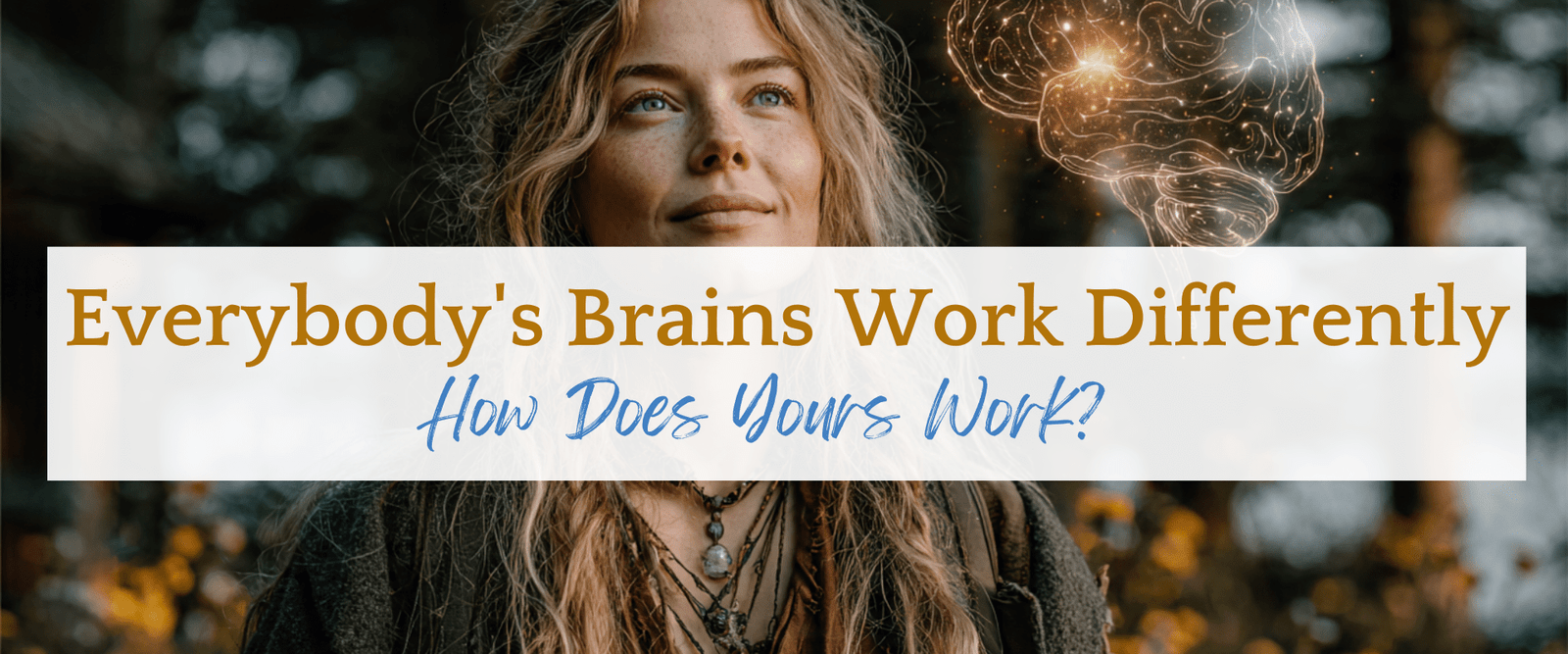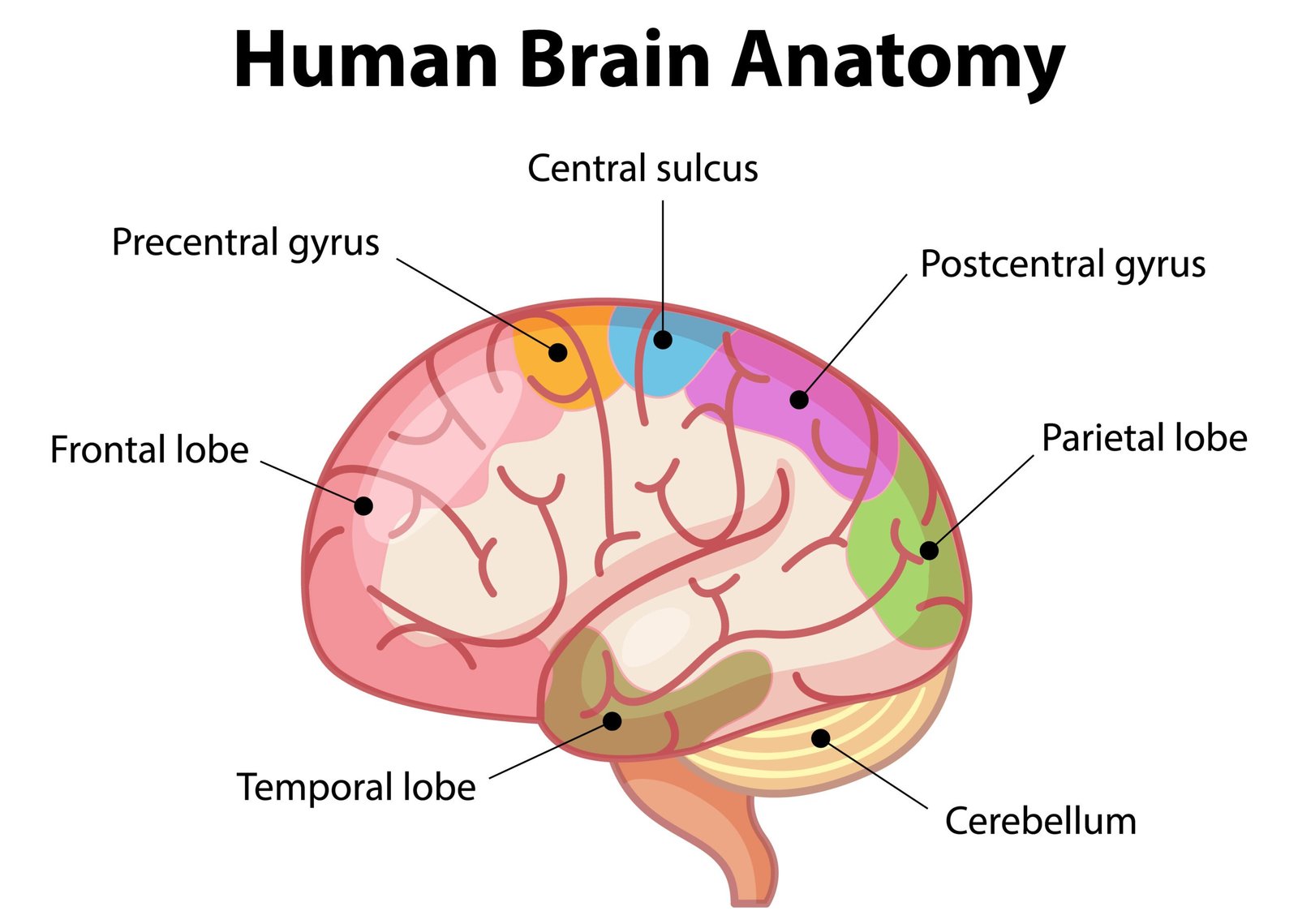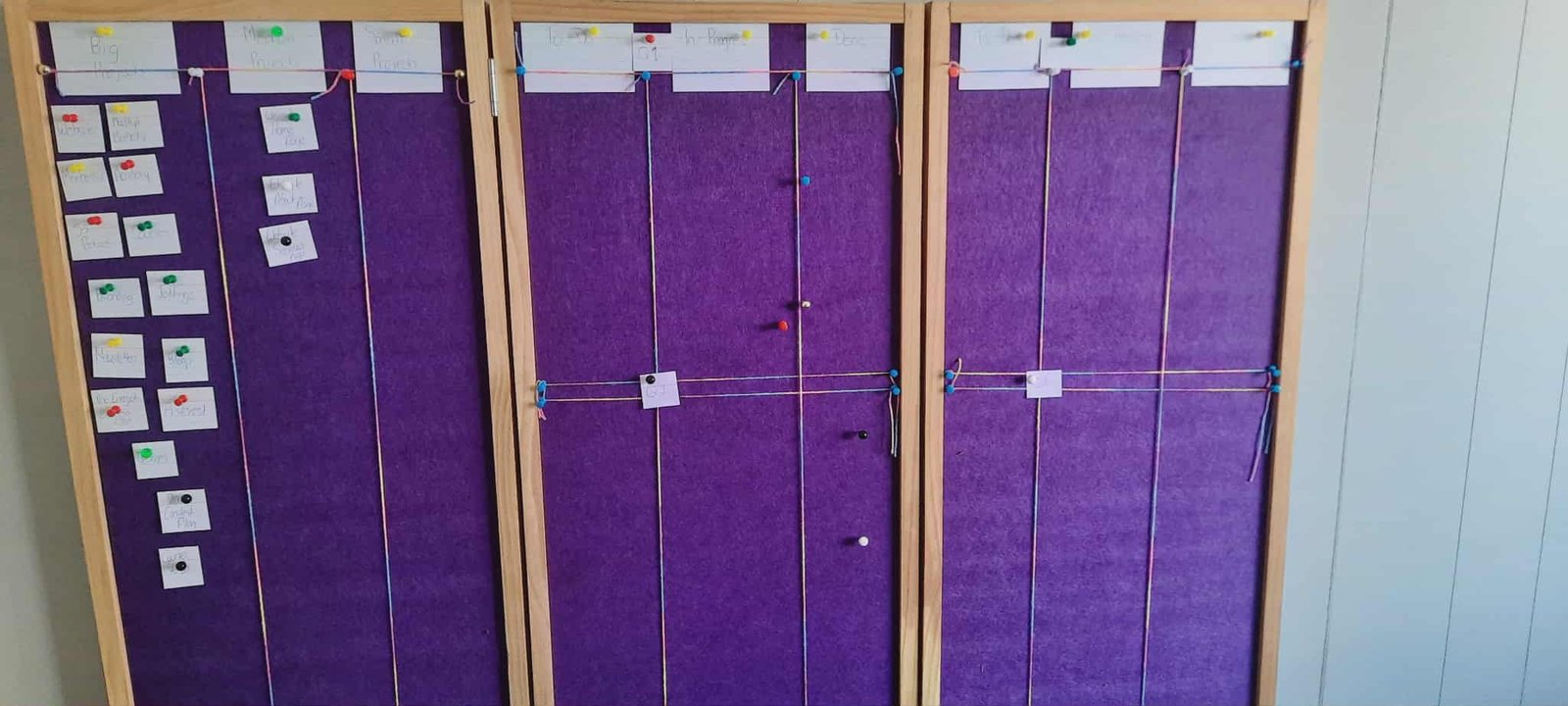
Do you get told that you must do business a certain way such as plan out the year; schedule; don’t have more than one niche?
There are so many different ways of doing things and when we follow one way only and if it doesn’t work you can blame yourself instead of doing a review to see what worked and what didn’t. I did this every day that I worked in my healthcare field career because it was a vital part of becoming better at my job.
Understanding that brains work differently can help ease the pain of thinking that we are doing something wrong if we don’t get the same results as others in the same program, cours, mastermind. You are not alone because one size doesn’t fit all.
Our brain can require different approaches to the way that we do things in business and in this blog I will be talking about the different parts of the brain, what executive function is, why labels can be harmful and ten ways that you can you understand your brain.
What Are The Different Parts Of The Brain?
Our brain is made up of different parts that all have a function such as breathing, blinking your eyes etc.
| Part | Location | Main Functions |
|---|---|---|
| Frontal Lobe | Front of brain (cortex) | Reasoning, planning, movement (motor cortex), speech (Broca’s), personality, behaviour |
| Parietal Lobe | Upper middle cortex | Sensory processing (touch, pressure, temperature, pain), spatial awareness, reading/writing, maths |
| Temporal Lobe | Side cortex (near ears) | Hearing, memory (hippocampus), language comprehension (Wernicke’s), emotion (amygdala) |
| Occipital Lobe | Back of cortex | Vision (primary visual cortex), interpretation of visual input |
| Insula | Deep within lateral sulcus | Interoception (internal body awareness), taste, emotion |
| Thalamus | Deep centre of brain | Relay for sensory signals (except smell), sleep–wake regulation |
| Hypothalamus | Below thalamus, floor of 3rd ventricle | Homeostasis (temperature, hunger, thirst), endocrine control via pituitary, circadian rhythm, emotions |
| Pituitary Gland | Below hypothalamus | Hormone secretion (growth, reproduction, thyroid, adrenal regulation) |
| Pineal Gland | Between hemispheres, above midbrain | Melatonin production, sleep–wake cycle |
| Basal Ganglia | Deep cerebral hemispheres | Initiation/control of movement, habit learning, reward circuits |
| Amygdala | Temporal lobe (deep) | Emotion (fear, aggression), emotional memory |
| Hippocampus | Temporal lobe (deep) | Memory formation, spatial navigation |
| Corpus Callosum | Connects left & right hemispheres | Communication between hemispheres |
| Cingulate Gyrus | Above corpus callosum (limbic cortex) | Emotion, learning, memory, motivation |
| Cerebellum | Back of brain, under occipital lobes | Coordination, balance, fine motor control, motor learning |
| Brainstem – Midbrain | Upper brainstem | Eye movements, reflexes, auditory/visual processing |
| Brainstem – Pons | Middle brainstem | Breathing rhythm, sleep, facial expressions |
| Brainstem – Medulla | Lower brainstem, continuous with spinal cord | Autonomic functions: heart rate, breathing, blood pressure, swallowing |
| Ventricles & CSF | Cavities within brain (lateral, 3rd, 4th) | Produce & circulate cerebrospinal fluid (protection, nutrient transport) |
| Spinal Cord | Extends from medulla down vertebral column | Transmits motor/sensory signals between brain & body |
Now imagine if we all operated the same? What would happen? We wouldn’t be the different an amazing people that we are.

What can affect the brain and how it functions.
Our brain can be affected in many different ways such as food, drink, medication, illness, injury etc. One way is if there is an injury to the frontal lobe which affects personality, reasoning, planning etc.
Our upbringing is another way that can have affected the way that our brain works.
We now also have the different recognised types neurodiversity that affect the way our brain functions.
All of this impacts in various ways the way that we are able to work as a businesswoman. I know for me that I need to have some control nad be organised. An example is that I have Airtable, which is like Excel on steroids, where I have all my podcast episodes and all the links to the episodes. If I didn’t have that I would be lost.
None of this is ‘bad,” it is just the way we work which is to be celebrated and embraced.
Executive Function. What Is It?
Think of executive function as the brains control centre which is a set of mental skills that help us organise ourselves, get things done, and manage day-to-day life.
Here’s what it includes:
-
Planning & Organisation – setting goals, making a plan, breaking things into steps.
-
Working Memory – holding information in your mind while using it (e.g. remembering a phone number long enough to dial it).
-
Inhibition / Impulse Control – stopping yourself from blurting out or acting before thinking.
-
Flexible Thinking – shifting gears when something changes, problem-solving in new ways.
-
Self-monitoring – checking in on yourself, noticing mistakes, and adjusting.
-
Time Management – estimating how long things take and keeping track.
-
Emotional Regulation – keeping feelings balanced enough to stay on task.
When executive function is working smoothly, life feels more ordered and doable. When it’s struggling (whether from brain injury, illness, stress, or neurodiversity like ADHD), things like starting tasks, staying focused, or finishing projects can feel really hard.
This is one reason why the one-size-fits-all doesn’t work for a lot of people and why I repeatedly say find someone that can work with how your brain works

Why Labels Can be Harmful
**This is my personal opinion and experience and not scientifically proven so don’t come at me.
For me personally when I was labelled with C-PTSD, Depression and Anxiety I became that even more which kept me in a loop for quite a few years. It took some time to let go of those labels and embrace all of me and my uniqueness.
Labels are everywhere especially in the healthcare-field that I spent over 30 years working in. People were labelled with an illness, injury, disease etc and I saw first hand how this affected the clients and their families. Labels do help a lot of people understand themselves in a way that they may not have before.
I have seen people that have labels become those to the point that there is nothing else to their lives but that label and how it affects their daily life. I know I am neurodiverse and yet I didn’t want to go down the road of getting all the tests because I know I would have gone backwards again. Also how would it change what I already do. I have learnt to work with my energy, and my brain in a way that supports me and helps me run my business and have a life that I enjoy.
5 Ways You Can Support How Your Brain Works
Spend a Week Studying Yourself and Your Brain
Over one week jot down each hour what you were doing, how you felt, what was your energy like, how were you feeling emotionally and anything else that can help you to learn how your brain works. Once you have done that go back and have a look. Are there patterns such as you have more energy early morning to have client calls? Or maybe you are productive just before lunch to create content. Pay attention to your natural rhythms. I know from doing this myself that I don’t do calls, courses or anything at night as it stuffs up my sleeping pattern so much.
This is very helpful as you can have a rough idea of how your work can go. Of course things can change because “life.”
Review Your Day
When it comes to the end of your day you can reflect on what went well and what didn’t or felt hard. In nursing it was called reflecting and it was so useful as it helped with self-awareness and improved my performance as a nurse. By learning from what our experiences were during the day we are able to make better business decisions and to take more informed actions in the future.
Reflection promotes metacognition (yeah I know it is a big word which means it is the awareness and understanding of one’s own thought process), critical thinking and self regulation. This leads to personal and business growth, better problem-solving and a greater independence. The metacognition was big for me because through sessions with my psychologist I discovered my brain functions on catastrophising which is why I named this area “Scared One.” This helps a lot as I talk to that part when it comes up which has helped my mental health a lot.
Critical thinking is important in business because we are the ones running our business because we are then able to assess what our coaches are saying, what the world is saying, and consider the different perspectives to challenge ideas and reach a logical conclusion for us. We can then make informed decision instead of relying on our coaches to make our decisions. I did a podcast episode on that which you can watch here.
Choose Activities that Support You
Now that you have done the above you can look at activities that will give your brain a boost (walking, journaling, meditation, movement, music, creative play). This is especially useful when you are overthinking, low on energy or just not feeling it. You can build these into your day deliberately instead of waiting until you “have time.” If you wait until you have the time then I can guarantee you that it most likely would never happen. Have this list close by as a reminder that these activities are what you love doing.
Reduce the Things that Work Against You
When you think about the things that work against you what might they be for you? It might mean too much screen time, multitasking, skipping meals, clutter, or people who drain you. We have all been told that women do multitasking so well and now there is scientific proof that multitasking isn’t actually right. Monotasking is the way to go and how that looks for you is for you to discover. It may mean that you work on one task for 10 minutes or 40 minutes. You then switch to another task. Writing this blog is monotasking for me. It has taken me a lot longer to write than I wanted and i am okay with that.
When it comes to this I want you to name these things honestly and then experiment with ways to reduce them. In the past I was good at skipping meals because i would get lost in the moment. I now ensure that I have three main meals and sometimes even in-between meals.
Create Your Own Support System
A support system is so important as many business women work by themselves at home and mostly online. The support system can include using reminders, routines, or tools (like lists, alarms, planners, apps) that make things easier for your brain. For me lists can be very helpful and the photo below is my planning list which is much fuller since I took the photo. This is also good for my brain because I move things from To Do, to In Progress and then to Done. Depending on the task it may go straight from To Do to Done.
People are also our support system and when you surround yourself with friends that life you up, celebrate you, and help you by sharing social media posts business doesn’t feel as lonely. Reduce your time around people that drain you or make you feel bad. That is not support.

Take Action Now To Learn How Your Brain Works.
It is time to take action and you won’t regret it. When you understand how your brain works things will change. Have compassion for yourself whilst you learn because it will take time and practice. Reach out to your support team and let the know what you are doing so they can encourage and support you.
Conclusion:
Everybody’s brain works different for a number of reasons as mentioned above. My brain is an interesting one that some days it works so well and other days I need to rest. Learning about your brain will bring greater awareness for you and I wish you all the best with talking to your brain to find out how it can support you.
![]()


